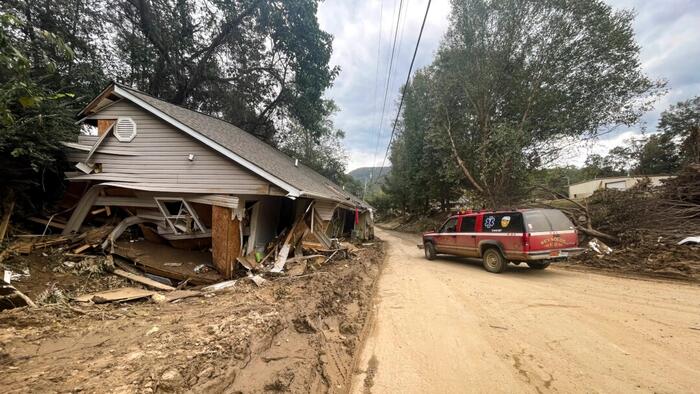In the wake of significant destruction caused by Hurricane Helene across western North Carolina in late September 2024, the U.S. Federal Emergency Management Agency (FEMA) released a “rumor response” page to address misinformation regarding its disaster response efforts. This initiative came on the heels of widespread claims and concerns about diminishing funds available for emergency relief, particularly with allegations directed at FEMA regarding the redistribution of its financial resources to support illegal immigration cases. On October 3, 2024, FEMA affirmed that it possessed sufficient funds for immediate recovery needs related to Hurricane Helene, urging those impacted by the storm to seek disaster assistance without delay. The agency categorically denied any diversion of resources from hurricane response to international or border-related issues, labeling such claims as false, though it refrained from specifying the details of these statements.
As national attention grew over the filing of claims related to the hurricane’s aftermath, criticism was leveled by Texas Governor Greg Abbott, who urged federal agencies, including FEMA and Homeland Security, to redirect funding intended for illegal immigration expenses back to disaster recovery efforts. Abbott’s remarks came in light of comments made by Homeland Security Secretary Alejandro Mayorkas, who noted during a press briefing that FEMA’s funding was being stretched thin and that the agency might not have enough resources to carry through the rest of the hurricane season, which concludes on November 30. These statements contributed to a growing sense of urgency and concern over the agency’s financial situation and highlighted increasing tension regarding federal priorities in disaster management versus immigration policy.
Representative Jim Jordan from Ohio echoed Abbott’s sentiments on social media, accusing the Biden-Harris administration of improperly reallocating over a billion dollars from FEMA’s budget for disaster relief to assist illegal immigrants. The intense outrage surrounding these claims was compounded by statements from other Republican lawmakers, such as Rep. Tim Burchett from Tennessee, who articulated that spending more on undocumented individuals while neglecting American Hurricane victims amounted to treasonous behavior. This mounting discontent signals a significant political clash regarding resource allocation in times of crisis and emphasizes the scrutiny faced by FEMA and the federal government in managing both natural disasters and immigration issues simultaneously.
Amidst the swirl of accusations, misinformation about FEMA’s operational protocols also emerged. Reports circulated suggesting that FEMA was seeking cash donations and denying volunteer opportunities in North Carolina. However, the agency refuted these claims, clarifying that it does not generally accept cash donations or volunteer services for disaster response. Instead, FEMA encouraged individuals wanting to contribute to engage with reputable charities that can provide the flexibility needed to allocate resources effectively. Such assertions against FEMA demonstrate the larger trend of misinformation flooding public discourse during emergency situations, which can complicate relief efforts and create obstacles for genuine assistance initiatives.
The American Red Cross also took the opportunity to refute similar allegations accusing it of mishandling donations in the aftermath of Hurricane Helene. The organization dispelled rumors that it was discarding or confiscating donated items and emphasized its commitment to providing essential services such as shelter and food during disasters. The Red Cross noted that while it does not accept physical donations—due to the complexities involved in managing them—it collaborates with community partners equipped to distribute such items. This clarification highlights the importance of accurate communication and the role of established organizations in maintaining public trust during disaster relief operations.
The impact of Hurricane Helene has been dire, with reports indicating that at least 215 lives have been lost, marking it as the deadliest storm to strike the U.S. since Hurricane Katrina in 2005. The ongoing recovery efforts underscore the critical need for effective coordination between federal, state, and local agencies, as they face both resource restraints and the complications introduced by misinformation. As lawmakers and various organizations navigate these turbulent waters, it becomes increasingly clear that effective communication and a united front in disaster response are vital for addressing the needs of affected individuals and communities in the wake of such catastrophic events.

